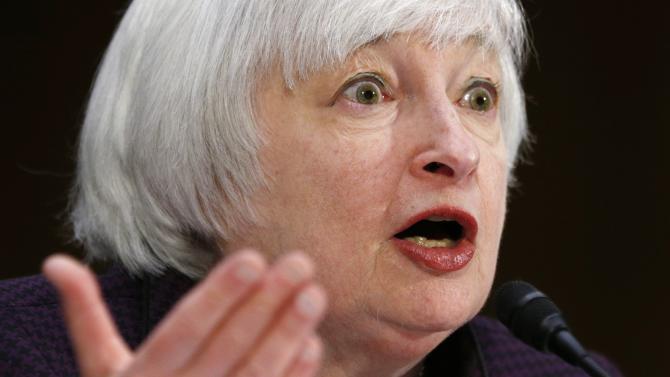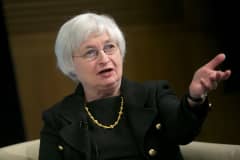Federal Reserve Chair Janet Yellen appeared before the House Financial Services Committee on Wednesday to deliver a monetary policy report.
In her prepared testimony released earlier, she said the U.S. has made progress, but labor market conditions are "not yet consistent" with maximum employment. Still, Yellen reiterated earlier comments that the Fed remains on track to raise rates this year—as long as the economy evolves as expected.
As the hearing began, Yellen was immediately put on the defensive. House Financial Services Committee Chairman Jeb Hensarling, R-Texas, called for more oversight and accused the Fed of flouting the law by ignoring requests for key documents. "The Fed's refusal to cooperate in a congressional investigation threatens both its reputation and its credibility. The Fed is not above the law," he said.
The most heated exchange of the day came when Rep. Sean Duffy, R-Wis., accused the Fed and Yellen of willfully quashing that Congressional leak probe. You can read about that here.
Via: CNBC
Continue Reading....






